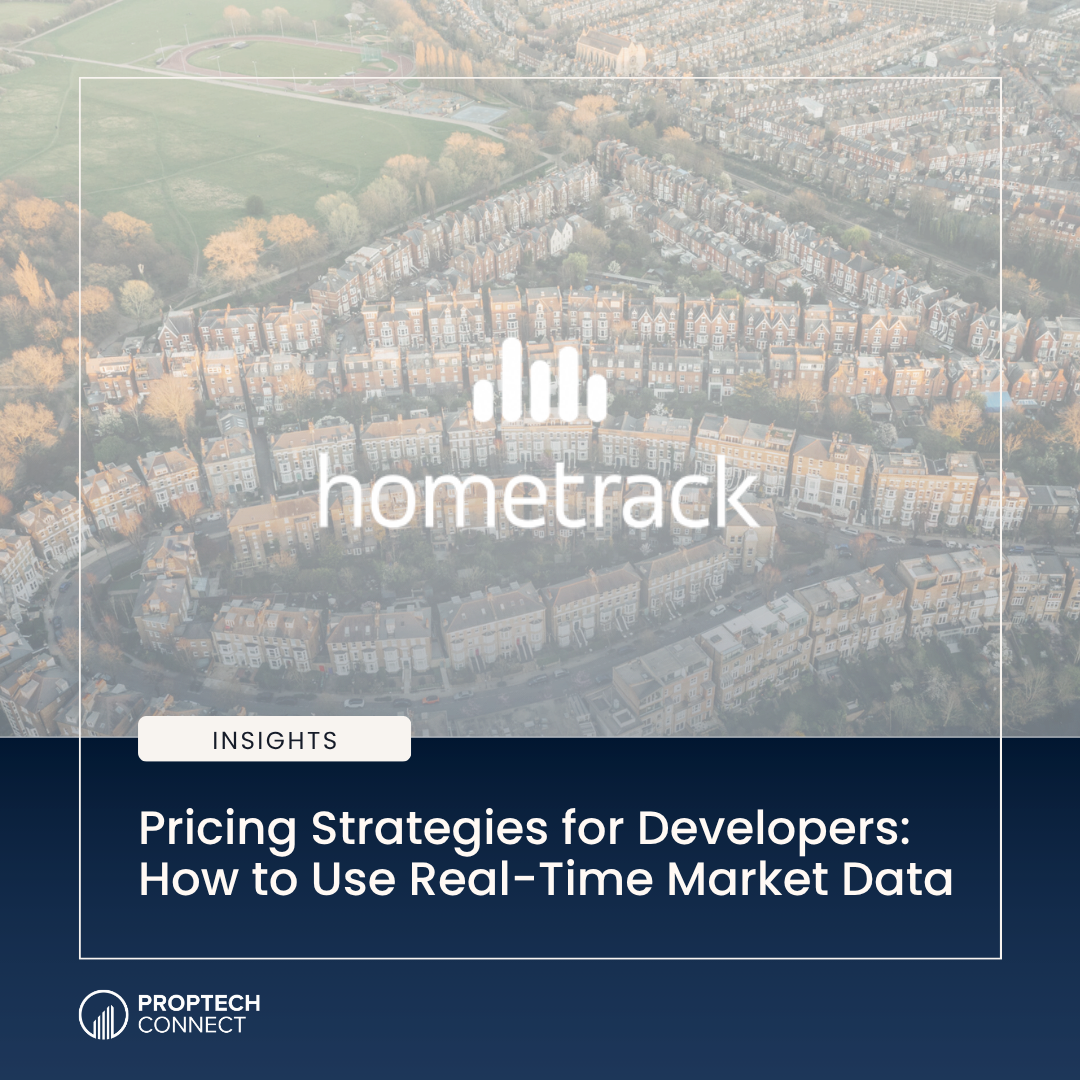What’s the cost of getting pricing wrong in today’s housing market?
For developers, it could mean months of stalled sales or squeezed margins. But here’s the good news: real-time market data is transforming how developers set prices and it’s unlocking new ways to compete smartly. Now, with tools like Hometrack’s comparables data and Housing Market Intelligence, we can react to the market while it’s happening, not after.
This guide breaks down the pricing strategies property developers need in 2025, backed by actionable data and examples from across the UK. Whether you’re fine-tuning incentives or planning your next release phase, this is your data-driven roadmap.
In 2025, pricing is more than numbers, it is strategy. With tighter margins, fluctuating buyer confidence, and performance-linked financing, developers can’t afford missteps. Real-time data is essential to price accurately, align marketing, and stay competitive without resorting to discounting.
5 Ways To Leverage Real Time Data That Will Have Immediate Impact
1. Track Buyer Appetite Through A Flexible Pricing Model
Developers who stick to static price lists miss out on major opportunities.
Here’s how to build a pricing model that flexes with the market.
- Benchmark with local comparables. Use live sales data from similar schemes to set a baseline then monitor how quickly those units are moving.
- Adjust pricing by unit type or spec. Not all plots are created equal. Price to match real demand for 2-beds, south-facing, or premium finishes.
- Use price per square foot strategically. Buyers often compare this metric directly. Stay within expected ranges to avoid disqualifying your product before the viewing.
- Track price elasticity. If a unit hasn’t budged in 4 weeks, it might not be the marketing, it might be the price. Testing £5,000 intervals helps gauge buyer thresholds.
- Feed data into marketing campaigns. Real-time performance can shape ad copy, keywords, and USPs. Promote what’s performing, not just what’s left.
Understanding these early dynamics is equally important during site appraisal.
2. Factor in Hyper-Local Price Sensitivity
A £10,000 incentive in Kent might be generous. In parts of Greater Manchester? It’s expected. You can’t apply national pricing rules to hyper-local markets.
- Micro-markets matter. Even within a single town, proximity to schools, stations, or green space can create demand differentials. Data helps you price accordingly.
- Local affordability is a ceiling. Just because your costs have risen doesn’t mean the local buyer can absorb it. Real-time data shows what they’re actually paying nearby.
- House type performance varies. Detached homes in rural Gloucestershire might be flying, while urban flats in Leeds need discounts. One strategy won’t cut it.
Keep in mind, shifting affordability thresholds and planning reform delays in the wider market will always shape local pricing strategy.
3. Capture Competitor Discounting with Smart Incentive Design
- Timing is Everything. If week-on-week viewings are falling, don’t wait until next month’s sales meeting. Introduce a flash incentive now and measure the response.
- Focus on the Offer. A gifted parking space or premium appliance package may boost appeal without eroding face-value pricing. Use data to test what lands best with each buyer type.
- Match to Buyer Segments. First-time buyers might prefer deposit top-ups. Downsizers? Maybe a removal package does more than £2,000 off. The right incentive varies and data helps tailor it.
- Refresh Regularly. Avoid incentive fatigue by switching them every few weeks. Real-time conversion data helps pinpoint when it’s time to rotate.
- Create Urgency. “Limited-time only” works best when it’s true and tied to live sales data that proves movement. Use urgency backed by evidence.
4. Boost Incentive Effectiveness
Adjusting prices isn’t a sign of failure, it’s a sign you’re paying attention.
Here’s how to do it smartly:
- Base changes on performance, not panic. Use rolling 4-week data windows to make changes based on trends, not one quiet weekend.
- React to market sentiment shifts. Are you seeing a bounce after interest rate cuts? Time your price increases to align with renewed buyer optimism.
- Don’t overreact to one data point. A slow week doesn’t mean slashing £10,000. But 6 weeks of no movement? Time to reassess.
- Use pilot plots. Adjust pricing on a small selection of units first to gauge demand before rolling out sitewide.
- Build in review checkpoints. Schedule formal pricing reviews tied to build stage, reservations, and sales conversion data.
5. Fuel Market Confidence with Collaborative Data
Pricing shouldn’t live in a silo. When teams align around the same live insights, better decisions follow.
- Shared dashboards are game changers. Give everyone access to the same real-time sales and market data. Less second-guessing, more alignment.
- Marketing can pivot faster. If incentives are working on Plot 12, campaign budgets should shift accordingly, not in next month’s review.
- Sales teams get smarter. Knowing what’s happening nearby helps them pitch more effectively, set expectations, and close faster.
- Pricing becomes proactive. Instead of waiting for missed targets, your team can anticipate slowdowns and respond early.
- Feedback loops drive agility. Weekly insight-sharing keeps teams responsive and aligned with what the market’s telling you.
Final Thoughts
Pricing isn’t a static task anymore, it’s a live, evolving strategy. And in 2025, the edge belongs to developers who listen to the market in real time. From reservation rates to incentive effectiveness, real-time housing market intelligence lets you fine-tune pricing, adapt faster, and sell smarter. Whether you’re releasing a new phase or adjusting pricing on a slow-moving unit, data puts you back in control. If you’re looking to sharpen your pricing strategy, Housing Market Intelligence is a proven way to maximise return on investment while staying competitive.
Get in touch with Hometrack Data Services today and discover how Housing Market Intelligence can help you price with precision.
Source











